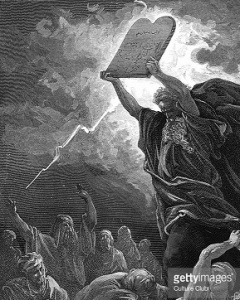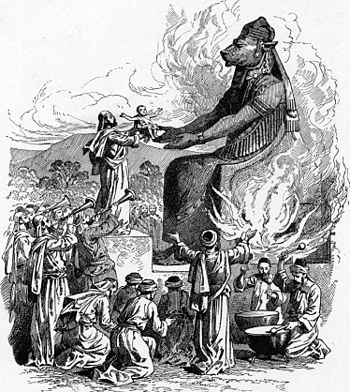I came across a blog entitled: The Rapture is Imminent. Since I happen to feel strongly about that I indulged myself.
The page began with "Seventy weeks are determined upon thy people and upon thy holy city", however the prominent caption read:
The Great Tribulation - The Seventieth Week of Daniel - It's All About Israel.
With a title like The Rapture is Imminent, and an opening line of "Seventy weeks are determined upon thy people and upon thy holy city", the association my mind wanted to make, but now clarify is: I am supposed to be looking for some connection between the seventy weeks and the Great Tribulation?
What can I determine from the statement, "Seventy weeks have been decreed for your people and your holy city"?
- That God is mad at Israel and Jerusalem. Is that the case? Absolutely. Israel played the harlot rejecting not only God, but the Son that came in the form of the Messiah.
The quote about "Seventy weeks ..." is taken from the prophecy of Daniel, so let's start there.
"Seventy weeks have been decreed for your people and your holy city, to finish the transgression, to make an end of sin, to make atonement for iniquity, to bring in everlasting righteousness, to seal up vision and prophecy and to anoint the most holy place. (Daniel 9:24 NASB)
Seventy weeks - we are talking about 70 sabbatical periods, each of which is seven years (70x7 = 490 years). Let me be honest, At first I found myself floundering in this, and then I remembered, this a Jewish book and the words that Daniel wrote would have made an immediate connection to the sabbatical years for the Jewish reader.
 The LORD spoke to Moses on Mount Sinai, saying, "Speak to the people of Israel and say to them, When you come into the land that I give you, the land shall keep a Sabbath to the LORD. For six years you shall sow your field, and for six years you shall prune your vineyard and gather in its fruits, but in the seventh year there shall be a Sabbath of solemn rest for the land, a Sabbath to the LORD. You shall not sow your field or prune your vineyard. (Leviticus 25:1-4 ESV)
The LORD spoke to Moses on Mount Sinai, saying, "Speak to the people of Israel and say to them, When you come into the land that I give you, the land shall keep a Sabbath to the LORD. For six years you shall sow your field, and for six years you shall prune your vineyard and gather in its fruits, but in the seventh year there shall be a Sabbath of solemn rest for the land, a Sabbath to the LORD. You shall not sow your field or prune your vineyard. (Leviticus 25:1-4 ESV)
The IVP Bible Background Commentary: New Testament – www.ivpress.com, tells us: “seventy sevens. A period of seven years was the sabbatical year cycle (see especially Leviticus 26:34-35 and the reference to it in 2 Chronicles 36:21). Seven sabbatical year cycles constituted a Jubilee cycle, at the end of which slaves were set free and land was returned to its proper owner (Lev 25). Seventy sabbatical cycles equal ten Jubilee cycles.”
Did Israel follow this rule of keeping the Sabbath years? No, they ignored it and found ways around it, therefore God gave the land its Sabbath. So, over the course of time, God had Israel temporarily removed from their land.
Question: is God more interested in land than people?
No, he was interested in Israel learning to trust and comply. Having lived in Egypt for over 400 years, they were deeply assimilated into the culture of the Egyptians and followed their gods. This is shown rather quickly when Aaron created the half man, half calf god Molech, that the people demanded, because Moses stayed on the mountain so long.
When the people saw that Moses delayed to come down from the mountain, the people gathered themselves together to Aaron and said to him, "Up, make us gods who shall go before us. As for this Moses, the man who brought us up out of the land of Egypt, we do not know what has become of him." So Aaron said to them, "Take off the rings of gold that are in the ears of your wives, your sons, and your daughters, and bring them to me." So all the people took off the rings of gold that were in their ears and brought them to Aaron. And he received the gold from their hand and fashioned it with a graving tool and made a golden calf. And they said, "These are your gods, O Israel, who brought you up out of the land of Egypt!" When Aaron saw this, he built an altar before it. And Aaron made a proclamation and said, "Tomorrow shall be a feast to the LORD." And they rose up early the next day and offered burnt offerings and brought peace offerings. And the people sat down to eat and drink and rose up to play. (Exodus 32:1-6 ESV)
A golden calf, it sounds rather benign to the non-spiritual ear, but there was nothing benign about it. Stephen – a follower of Christ, whom we find in the seventh chapter of Acts, is dragged before the Jewish council and there he makes an eloquent case for the gospel of Christ in his own defense. Stephen lays out a Jewish history for these learned men, and none of them disputed what he said. In Stephen's argument we gain details about the events of Exodus 32:1-6 that we do not find anywhere else in scripture. The silence of the council lends validity, but why were they silent?
John Gill's Exposition of the Entire Bible states: “the Syriac version here reads in the singular number, "and he made them a calf"; this was a most shameful and scandalous piece of idolatry. The Jews themselves are so sensible of the horribleness of it, and of the guilt of it, and of the reproach that lies on them for it, that it is common for them to say (c), "there is not a generation, or an age, in which there is not an ounce of the sin of the calf.''
The IVP Bible Background Commentary informs us that: “The episode of the golden calf was the incident in Israel’s history of which the rabbis were most ashamed; they felt it was the most sinful of Israel’s acts. But they grew defensive when pagans queried them about it (Josephus earlier even omitted the incident), and several centuries later they argued that the pagans who accompanied Israel, not Israel, made the calf.”
Apparently the hope is, if you don't speak of it, then perhaps the problem, or embarrassing situation will go away. Having spent some time in recovery and heard the testimonies of many that have struggled so long to overcome co-dependency, ignoring a problem never made it better. While I can understand the Jews disgust and humiliation over roasting babies on the arms of an idol called Moloch. Perhaps, their dishonor is at the acknowledgment that God, the name they would not even pronounce out of respect, killed about three thousand people over this incident.
Now, here we are talking the rapture being imminent. While the outcome for those caught up, is the glorious reality of a life forever with Jesus in eternity, the grievous facet is upon those left on earth during the seven years that follow. It will be the time of God's wrath, but it will include the wrath of Satan, lived out in the hearts of evil people.
You can solve the problem of being left behind by acknowledging that Jesus Christ is God, and that you need and receive Him into your life. Should you do that, in that moment you become His and a member of the family of God.
On my original attempt at clarifying and redefining the blog post about the Rapture being Imminent, it turned out to be nine pages long. As much as it bugs me, I am going to turn this into parts, and this is part one.







No comments:
Post a Comment
Feel free to make a relevant comment. If approved, it will be posted.